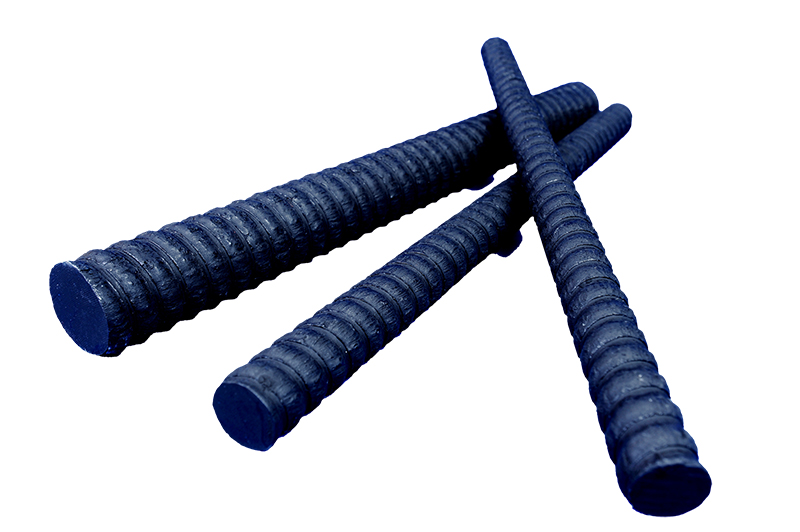- June 19, 2024
- Posted by: wellcoindustries
- Category: Rebar
FRP rebar, short for Fiber Reinforced Polymer rebar, is a type of reinforcement material used in concrete structures. Unlike traditional steel rebar, FRP rebar is made from a composite of fibers and polymer resin. Here’s a simple breakdown to help you understand what FRP rebar is and why it’s important:

Key Components
- Fibers: These are usually made from materials like glass, carbon, or basalt. They provide the strength and rigidity.
- Polymer Resin: This binds the fibers together, giving the rebar its shape and additional durability.
Advantages of FRP Rebar
- Corrosion Resistance: One of the biggest benefits of FRP rebar is that it does not rust or corrode. This makes it ideal for use in environments where moisture and chemicals are present, such as marine structures, bridges, and industrial facilities.
- High Strength-to-Weight Ratio: FRP rebar is strong yet lightweight. This makes it easier to handle and transport compared to traditional steel rebar.
- Non-Magnetic and Non-Conductive: Because it’s non-magnetic, FRP rebar is perfect for applications where electromagnetic interference is a concern. It’s also non-conductive, which is beneficial in electrical and electronic facilities.
Common Applications
FRP rebar is used in various construction projects, including:
- Bridge Decks: Helps prevent corrosion in structures exposed to saltwater or deicing salts.
- Parking Garages: Reduces maintenance costs by avoiding corrosion from road salts.
- Marine Structures: Ideal for docks, seawalls, and other structures in contact with water.
- Industrial Floors: Prevents interference in sensitive electronic environments.
Environmental Benefits
Using FRP rebar can contribute to sustainability in construction. Since it lasts longer than steel rebar without the risk of corrosion, structures reinforced with FRP require less frequent repairs and replacements, reducing the overall environmental impact.
Conclusion
FRP rebar is a modern reinforcement material that offers significant advantages over traditional steel rebar, especially in environments where corrosion is a major concern. Its durability, strength, and resistance to various environmental factors make it a valuable material in many construction projects. As construction technology advances, FRP rebar is becoming an increasingly popular choice for ensuring long-lasting and low-maintenance structures.
By understanding the basics of FRP rebar, you can appreciate how it contributes to the longevity and integrity of modern concrete structures, making it a smart choice for many construction applications.
